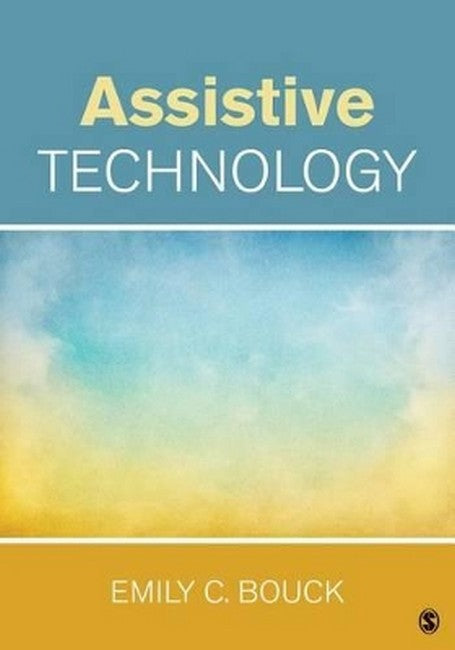Emily Bouck is an Associate Professor of Special Education in the Department of Counseling, Educational Psychology, and Special Education at Michigan State University. She received her doctorate in special education from Michigan State University. Dr. Bouck is the author of numerous peer-reviewed journal articles and chapters relating to her two main areas of research: mathematics education for students with disabilities and functional life-skills education for students with disabilities with a central theme of assistive technology throughout both areas. Dr. Bouck is a Past President of the Division on Autism and Developmental Disabilities of the Council for Exceptional Children and has also been active in the Technology and Media Division of the Council for Exceptional Children. Dr. Bouck taught courses on assistive technology; social, legal, and ethical issues in special education; special education methods; and doctoral seminars. She has experience working with a range of students with disabilities in school-settings from preschool through age 26.
Request Academic Copy
Please copy the ISBN for submitting review copy form
Description
Chapter 1: Assistive Technology Background Assistive Technology Universal Design for Learning Perspectives of Assistive Technology in this Textbook Chapter 2: Assistive Technology Frameworks Assistive Technology Decision-Making Assistive Technology Selection Tools and Resources Assistive Technology and the IEP Chapter 3: Assistive Technology for Communication AAC Categorization AAC Decisions-Making Research on AAC Chapter 4: Assistive Technology for Mobility and Positioning Assistive Technology for Mobility Assistive Technology for Positioning and Seating Chapter 5: Assistive Technology for Computer Access Assistive Technology for Computer Access Assistive Technology for Mobile Devices Built-In Accessibility Web 2.0 and Apps Chapter 6: Assistive Technology for Vision and Hearing Assistive Technology for Vision Assistive Technology for Hearing Assistive Technology to Support Students Who are Deaf-Blind Web 2.0 and Apps Chapter 7: Assistive Technology to Support Behavior and Organization Organization Management and Monitoring Social Skills and Social Emotional Development Sensory Web 2.0 and Apps Chapter 8: Assistive Technology as Instructional Aids Reading Writing Mathematics Science & Social Studies Study Skills Online and Hybrid Education Web 2.0 and Apps Chapter 9: Assistive Technology to Enhance Independence and Transition Assistive Technology for Transition & Post-School Experiences Chapter 10: Assistive Technology for Young Children Technology for Young Children Assistive Technology for Young Children Apps for Young Children with Disabilities
"Practitioner oriented with many great resources" -- Yeunjoo Lee "Breakdown of topics is logical and useful" -- Scott Sparks "Well written, good solid foundational information related to AT" -- Mike Marotta

